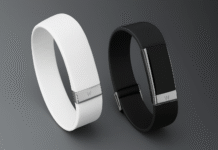Dive Brief:
- A new function for Apple’s smart watch that estimates how frequently users’ heart rhythms exhibit indications of atrial fibrillation has gained 510(k) clearance (AFib).
- In 2018, the Food and Drug Administration approved the use of the Apple Watch to identify abnormal cardiac rhythms. The new function is meant to make it easier for people with AFib to monitor the impact of lifestyle choices on the frequency of their irregular heartbeats.
- Before Rune Labs acquired 510(k) clearance for an application made for the Apple Watch that uses measurements obtained by the device to track Parkinson’s disease patients, Apple announced the new feature. Patients who utilize Medtronic’s Percept neurostimulator will benefit especially from the clearance, according to Rune.
Dive Insight:
Apple Watch already has an electrocardiogram that warns users of any indicators of erratic heartbeats that might be a sign of AFib. Wearers can use the function to detect cardiac conditions, but it does little to assist with managing those conditions once an official diagnosis has been made. Apple has since closed the gap.
Sumbul Ahmad Desai, Apple’s VP of health, stated at a business event, “We hear from so many of you who have received an atrial fibrillation alert and sought potentially life-saving therapy.” “As a result, we also intended to provide help when you received a diagnosis. Understanding how long you stay in AFib is crucial if you have this illness since it may affect your risk of developing severe problems like a stroke.”
In a statement released in 2020, the American Heart Association argued that lifestyle and risk-factor reduction should join well-established strategies like anticoagulants as the fourth pillar of AFib therapy. The stance was supported by research showing that making lifestyle changes like losing weight and getting more exercise can lessen the burden of atrial fibrillation.
AFib patients may find it simpler to track their frequency over time and determine whether lifestyle adjustments are having a good impact thanks to the new Apple Watch capability. The new Apple Watch history feature calculates the prevalence of AFib and enables users to analyse lifestyle elements that may affect their heart rhythm, like sleep, alcohol intake, and activity.
It’s one of two Apple Watch features approved in a short period of time. The second clearance relates to a third-party application created by Rune Labs to transform the Apple Watch into a tool for gathering data on Parkinson’s disease. The StrivePD app monitors tremors and dyskinetic symptoms for transmission to an iPhone app using the device’s features for movement disorders.
Rune anticipates that the approval will “enhance doctors’ ability to make brain-sensing data from these devices relevant” for patients who utilise Medtronic’s Percept PC Deep Brain Stimulation device. Late in the previous year, Medtronic and Rune partnered.











